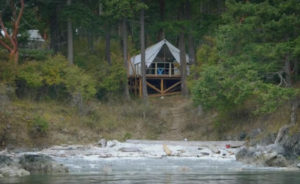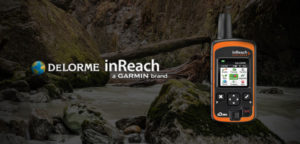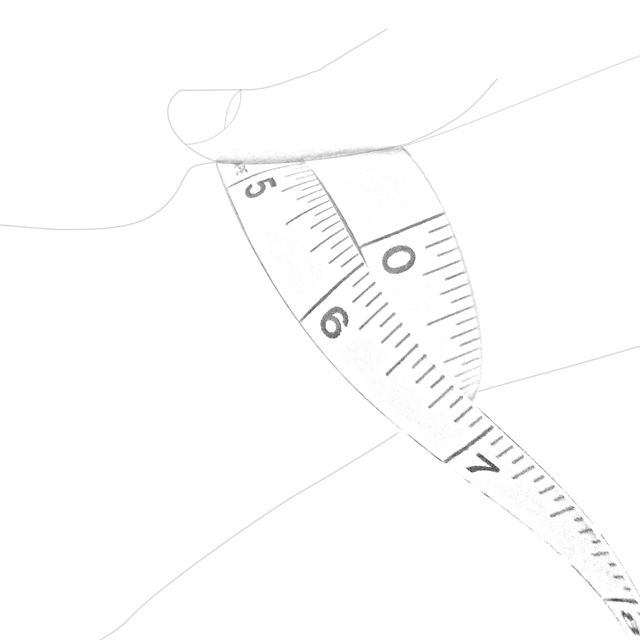inReach: Canoe Rescue off the Coast of Orcas Island
Last week we received news of an SOS event in the Puget Sound of Washington involving a capsized canoe off the coast of Orcas Island, Washington. After reaching out to the customer, we learned that an inReach Explorer played a critical role in coordinating the rescue and notifying the correct stakeholders of the incident.
Paul Sheridan, Camp Director at the Four Winds * Westward Ho Camp, recounted the harrowing experience that ended safely and with everyone accounted for.
Every summer, 25-foot wood and canvas war canoes, built by Old Town Canoe Company in the 1920s and 1930s, take Four Winds * Westward Ho campers on multi-day trips throughout the San Juan Islands. These are not standard canoes, but much larger, and take 6-10 people to paddle. It’s an extraordinary way for a group of young people to explore these islands, under human power, only able to get to the next campsite if they work together.
On July 29, one of our war canoes swamped on the last day of a three-day trip with seven 13-year-old boys aboard and two of our staff.

That morning the group woke up early at Point Doughty to catch a fair current to head back to Four Winds. Our trip leaders are well trained in understanding our local currents. They set out on the water at about 6 a.m. Shortly after leaving Point Doughty, they got caught parallel to a set of 2-3 foot high rolling waves. Two rollers put about ankle deep water into the canoe, and they began to bail it out. A third, larger wave, completely swamped the boat.
Sitting upright in the swamped boat, the trip leader went to his Four Winds training. Judging it too far to swim to shore, he had the boys turn the boat upside down, and pull their bodies on top of it. We train on this, and it worked extraordinarily well. It kept the group together, provided flotation beyond the PFDs that all aboard were wearing, and kept the boys’ bodies partially out of the cold water. Since this was the first war canoe capsizing we’ve had in over 30 years, it was great to see the training work so well in a real life incident
One of the Old Town Canoes used by Four Winds Camp.
Once the boys were stable on the overturned boat, the trip leader dug into his waterproof emergency bag. In there are five communication devices: A cell phone, a VHF radio, a DeLorme inReach, flares and an air horn. That redundancy in systems proved useful, because only three of the five communication devices proved useful. The cell phone got wet and didn’t work and the flares malfunctioned. The trip leader and the counselor began hailing for help via VHF, inReach and air horn. Throughout this entire period, the boys were in good spirits, making jokes and remarking on the oddity of their circumstances. Hearing that help was on the way was calming.
A Coast Guard helicopter was dispatched, and hovered above the canoe. The boys were brought to West Beach Resort, where dozens of Orcas Fire and Rescue EMTs were waiting. Some of the boys were exhibiting signs of mild hypothermia, namely shivering. They were given blankets, snacks and hot chocolate, and were in good shape within a few minutes of arriving on shore.

I learned of the incident via text message from the inReach at 6:30 a.m. stating that an SOS had been declared and the group’s location, about 1,000 feet off of West Beach. GEOS (DeLorme’s worldwide search and rescue coordination partner) called me immediately to confirm that emergency response should be activated. I said it should be. I then called the 24-hour emergency number for our good friends at YMCA Camp Orkila, since they were much closer to the incident. They were kind enough to go out in their boat, but by the time they arrived, the boys had already been fished out of the water. About 20 minutes after receiving the text, I got a call from the trip leader stating that the boys were on shore, and all was well. Later in the day, I was able to speak with all the parents of the boys involved, and all were pleased with our handling of the incident.
Most of all, I’m thankful for our friends and neighbors who helped that day: West Beach Resort, Outer Island Expeditions, Camp Orkila, the Coast Guard, Orcas Fire and Rescue and many private good Samaritans. Thanks to all of you.
We are so happy that everyone made it home safely after such a dreadful accident in the Puget Sound, but no Matter where your adventure takes you, inReach can help you share and protect your life anywhere in the world. Join the adventure and share your stories with us on Facebook, Twitter, Instagram using #HaveNoLimits.
The post inReach: Canoe Rescue off the Coast of Orcas Island appeared first on Garmin Blog.
Sample Block Quote
Praesent vestibulum congue tellus at fringilla. Curabitur vitae semper sem, eu convallis est. Cras felis nunc commodo loremous convallis vitae interdum non nisl. Maecenas ac est sit amet augue pharetra convallis nec danos.
Sample Paragraph Text
Praesent vestibulum congue tellus at fringilla. Curabitur vitae semper sem, eu convallis est. Cras felis nunc commodo eu convallis vitae interdum non nisl. Maecenas ac est sit amet augue pharetra convallis nec danos dui.
Cras suscipit quam et turpis eleifend vitae malesuada magna congue. Damus id ullamcorper neque. Sed vitae mi a mi pretium aliquet ac sed elitos. Pellentesque nulla eros accumsan quis justo at tincidunt lobortis denimes loremous. Suspendisse vestibulum lectus in lectus volutpat, ut dapibus purus pulvinar. Vestibulum sit amet auctor ipsum.

